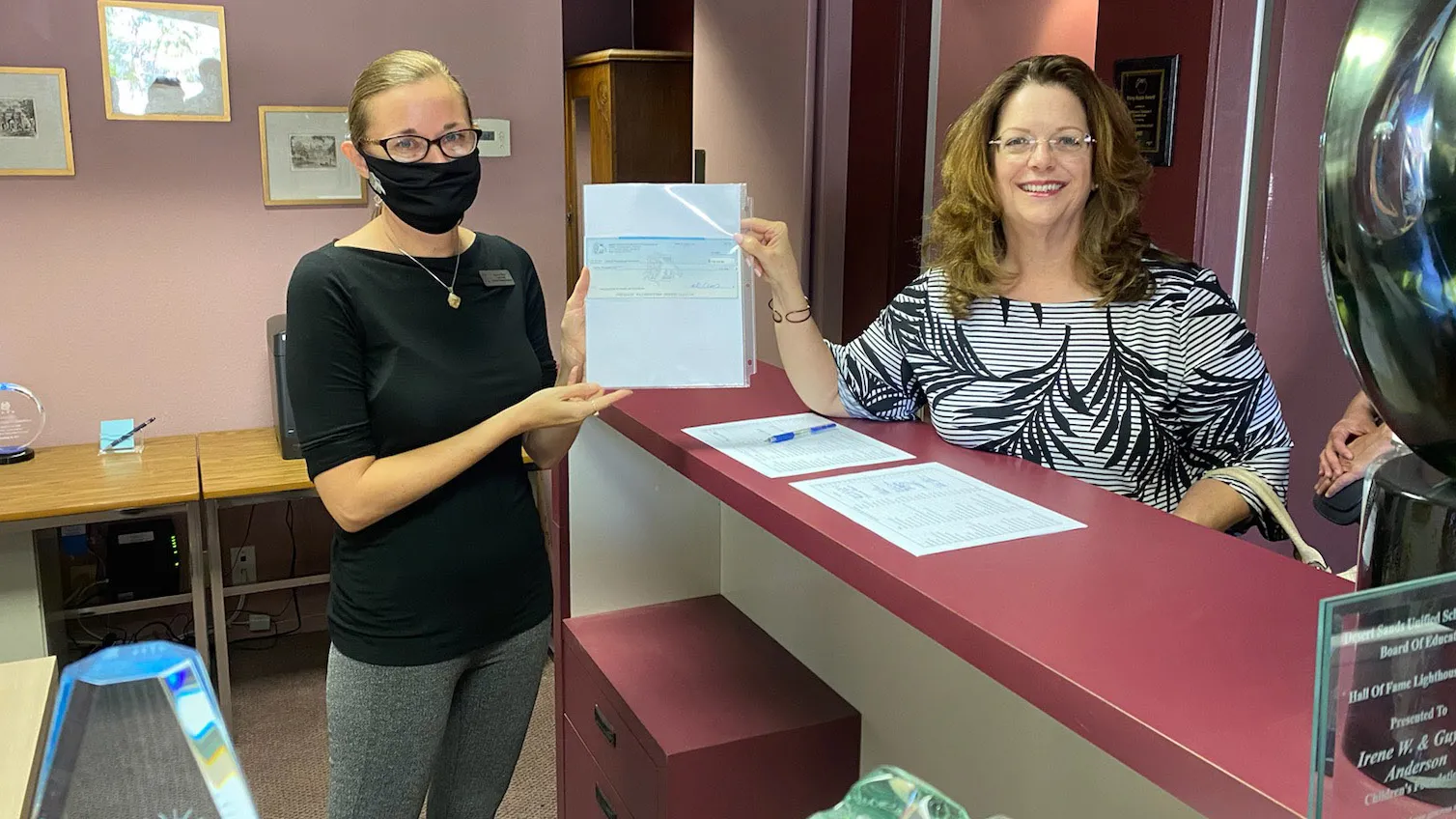Michael Singer | Office of Strategic Communication CSUSB Palm Desert Campus | (760) 341-2883, ext. 78107 | msinger@csusb.edu

The Anderson Children’s Foundation has awarded a $20,000 grant to the Neurofeedback Center at Cal State San Bernardino’s Palm Desert Campus to treat children in the Coachella Valley adversely affected by the COVID-19 pandemic.
CSUSB’s Neurofeedback Center will be partnering with school districts in the Coachella Valley to provide innovative mental health services to children whose mental well-being has been adversely affected by the global pandemic.
The funds will be used to extend the university’s neurofeedback program to students at greatest need in the Coachella Valley, and will provide additional neurofeedback services to 100 children per year, significantly improving the quality of life of the children receiving these services.
“Anxiety and depression levels decrease, academic performance improves, behavioral interventions decrease, and the overall positive outcomes enhance the lives of the children, their parents, their teachers, and the community as a whole,” said Connie McReynolds, director, Institute for Research, Assessment & Professional Development, professor, special education rehabilitation and counseling, CSUSB.
With 10 to 20 hours of brain training, the CSUSB Neurofeedback Center’s ongoing work has shown overwhelming improvement in children’s sustained ability to better self-regulate moods, listen well, assure that messages are being understood, understand visual information, and increase attention and memory capacity – all critical for academic success.
“We congratulate the Neurofeedback Center at Cal State San Bernardino’s Palm Desert Campus on their award and look forward to partnering with them this year to improve the lives of youth in our community,” said Brianna Uhlhorn, director of grants and media at the Anderson Children’s Foundation.

According to the Association for Children’s Mental Health, addressing mental health needs in school is critically important because one in five children and youth have a diagnosable emotional, behavioral or mental health disorder and one in 10 have a mental health challenge severe enough to impair how they function at home, school and in the community.
Estimates show that even though mental illness affects many children aged 6-17, as many as 80 percent do not receive the mental health care they need.
“At the local level, the need is significant,” said McReynolds. “While many students may have physical barriers, those identified with social and educational disabilities may greatly benefit from the neurofeedback program.”
The neurofeedback work at CSUSB has regularly demonstrated that neurofeedback offers remarkable results for challenges such as anxiety, trauma, behavioral and social-emotional dysregulation, and learning difficulties. Providing more than 10,000 sessions to children at the multiple CSUSB clinics has shown that the majority of children want to succeed in school and be mentally healthy.
Through neurofeedback the brain filtering areas are strengthened, affecting the way the brain processes external stimuli while building greater resilience to life’s traumas and stressors. The resulting enhanced processing skills lead to increased emotional self-regulation, decreased behavioral interventions, improvements in academic work, and improved family dynamics.
Research work and case studies support these findings and are providing leading-edge interventions to children who have been identified with anxiety, depression and learning difficulties. The neurofeedback program at CSUSB provides a valuable option to parents, counselors and educators to alleviate the child’s emotional difficulties while permitting the child to develop lifelong effective strategies building resilience to future stressors.
For more information about the Neurofeedback Center at the CSUSB Palm Desert Campus, visit the Neurofeedback Center website or email program director Connie McReynolds.
The CSUSB Palm Desert Campus offers bachelor’s and master’s degrees, a doctorate in educational leadership, and teaching credentials and certificates. With more than 1,600 students, it is the Coachella Valley’s four-year public university and plays a vital role in educating and training the region’s growing population.
For more information about the CSUSB Palm Desert Campus, contact Mike Singer in the Office of Strategic Communication at msinger@csusb.edu or (760) 341-2883, ext. 78107, or visit the campus website at www.csusb.edu/pdc.